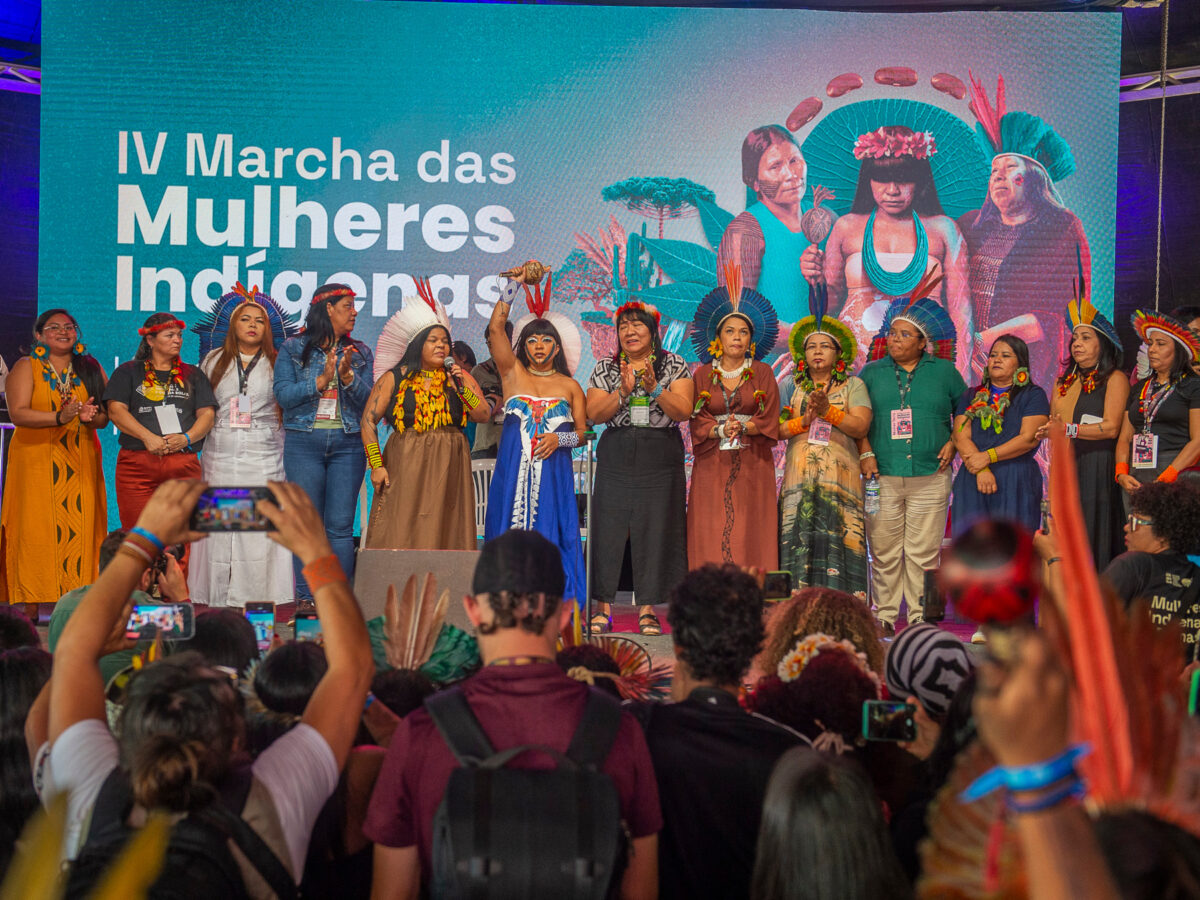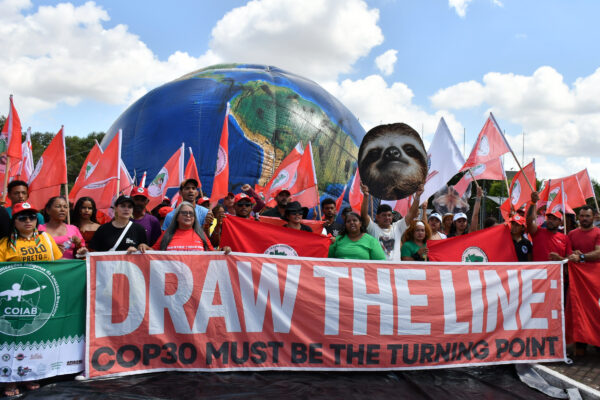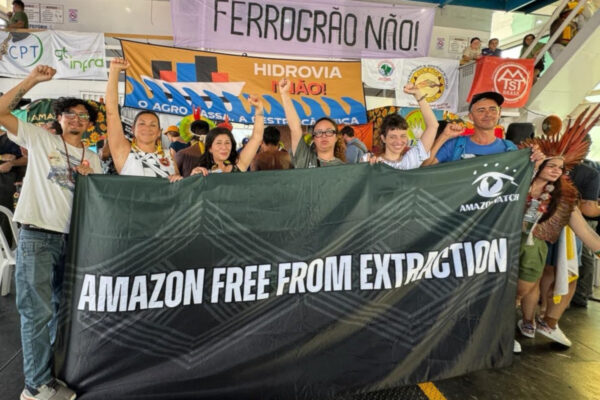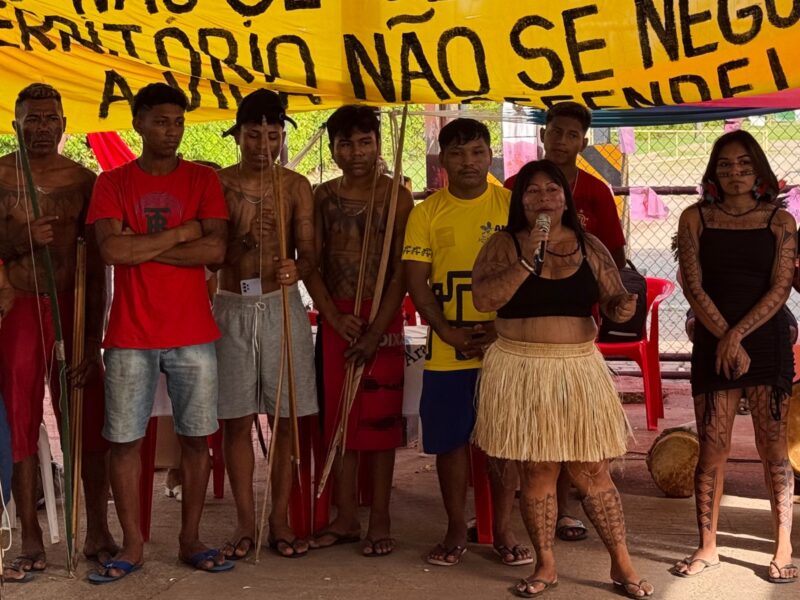Photos from the march are available here.
Brasilia, Brazil – More than 5,000 Indigenous women from across Brazil marched this week in the capital during the IV Indigenous Women’s March. Marching under the banner “Our body, our territory: we are the guardians of the planet.” The protesters highlighted growing threats to Indigenous territories and the Amazon, including the proposed Ferrogrão railway and the recently approved “Devastation Bill” (PL 2.159/2021).
Around 100 women from the Kayapó and Panará peoples – whose territories lie along the path of the planned railway – denounced the project’s environmental and social impacts. The Ferrogrão would span nearly 1,000 kilometers from Mato Grosso to Pará, cutting through the heart of the Amazon to transport soy and corn to export ports. Experts warn it could drive the deforestation of 49,000 km² – more than 12 times the total deforestation recorded in the Amazon in 2024.
“This soy doesn’t feed our people. We don’t eat soy – it’s for export and corporate profit. Meanwhile, pesticides contaminate our water, our soil, and even the rain. It’s poisoning all of us, not just Indigenous peoples. And food in the cities gets more expensive every day. Defending the forest is defending life for everyone,” said Irepoiti Metuktire, a Kayapó leader from the Kapôt Nhinore Indigenous Territory and representative of the Ropni Women’s Department of the Raoni Institute.
Protesters also denounced the violation of their right to Free, Prior, and Informed Consent (FPIC), guaranteed under international law. Affected communities received no consultation regarding the Ferrogrão project. “You didn’t consult us. This land is ours – it’s where we live with our grandparents, where our history is rooted. We have our own consultation protocol, and it must be respected,” said Panh-ô Kayapó, a leader from the Baú Indigenous Territory and director of the Kabu Institute.
In addition to opposing the railway, Indigenous women condemned the passage of PL 2.159/2021, which weakens Brazil’s environmental licensing system and threatens to fast-track destructive infrastructure projects across the Amazon.
“This bill shows that Congress doesn’t care about the Brazilian people. They want more profits for agribusiness and foreign companies, while regular people pay more for toxic food and suffer through droughts, floods, and the climate crisis. President Lula must veto this bill – it’s a matter of life and sovereignty,” said Panh-ô Kayapó.
As Brazil prepares to host the COP30 UN climate summit in Belém later this year, Indigenous leaders emphasized that protecting the Amazon and respecting Indigenous rights are essential to achieving real climate solutions.













